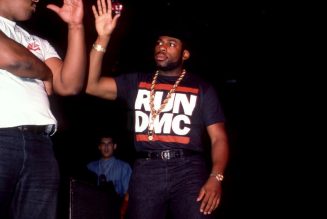
CISAC, the International Confederation of Societies of Authors and Composers, has centralized the assignment and administration of International Standard Musical Work Codes (ISWC).
Previously, those codes, which already have been assigned to 52 million song compositions, had been handled by a network of 54 registration agencies in 79 countries.
The ISWC administration switchover began in July with over 100 collection management organizations now participating in the new system, according to CISAC which commissioned Spanish Point Technologies to develop the new registration scheme. The rest of the publishing community and digital music platforms are expected to roll over to the new ISWC system shortly.
“The upgrade of the ISWC could not come at a more timely moment for songwriters and composers, who are now depending more than ever on digital income for their livelihoods,” CISAC President Björn Ulvaeus said in a statement. “ISWC is one of the most important identifiers in the music industry and I’m delighted that the upgrade is now completed and is being implemented across the sector. It will track music works better and faster and help put more money more quickly into creators’ pockets. The key now is to make sure the system really does go global – it needs to be universally applied to bring the potential rewards it offers to all players”.
According to the CISAC announcement, the new system dramatically reduces the time it takes to assign ISWCs, which in effect translates to within hours of a work’s release. That means that songs streamed on digital services can more easily be monetized. Moreover, the new system enhances song tracking automation, which will save societies time and resources that in turn should increase remuneration back to creators, according to CISAC.
Music publishing royalties from digital licensing rose 27 per cent to €2.1 billion in 2019, according to CISAC, and now accounts for about 22 per cent of all music publishing collections.
“At a time when creators need digital revenues more than ever before, we are launching a major upgrade to the ISWC system, which will lead to massive improvements in the way music works are identified and licensed,” CISAC director-general Gadi Oron said in a statement. “The new system will save time and costs for all parties and most importantly, will help deliver more royalties to creators. We are now working closely with our partners across the music sectors to make sure the upgraded system is used universally across the digital music market.”
ISWC is not to be confused with the ISRCs, or International Standard Recording Codes, which are assigned to recorded song masters. In fact, matching ISWCs to ISRCs is integral to ensuring songwriters get paid when their songs are played.
The other big benefit that ISWC centralization provides is helping to avoid duplications and inaccuracies that sometimes find its way into the marketplace. For example, if a song was written by multiple authors from different countries who belong to different collection management organizations, sometimes a work would inadvertently be assigned more than one code. According to CISAC, the new system will end the current practice of having ISWC codes allocated by individual societies, “a practice that leads to many data integrity challenges,” according to CISAC, which operates as a trade group for 232 member societies in 121 countries around the globe.
“A dynamic global music industry needs, more than ever before, to be constantly monitoring, adapting and improving the tools we have to secure speedy and accurate remuneration for creators and music players around the world,” the Brazilian Union of Composers CEO and CISAC board chair Marcelo Castello Branco said in a statement provided to Billboard by CISAC. “It was imperative for CISAC to formalize an upgraded ISWC that soundly responds to the growing and unstoppable music streaming challenges we face today.”
Likewise, digital services also chimed in applauding the move. “We applaud CISAC’s much-needed and long-awaited modernization of ISWC,” Spotify senior director of licensing Victoria Campoamor said in a statement, also provided by CISAC with its announcement. “We hope to see dissemination of this very important work identifier across the whole ecosystem, including labels and licensees, so that royalties can reach songwriters in a faster, more efficient and more accurate way.”
Music publishers are also coming to the party. “The new ISWC system will lead to significantly faster creation of codes and increased sharing of codes between the different stakeholders,” Sony/ATV Music publishing senior director of global administration Alex Batterbee said in a statement. “That is good for creators and good for the whole digital market.”
Finally, Spanish Point CEO Donal Culen added in a statement supplied by CISAC to Billboard, “We are proud that CISAC has chosen Spanish Point and our matching engine software as the foundation of the new ISWC system. Our matching engine uses the latest cloud and AI [artificial intelligence) technology to help creators worldwide get paid quicker and with great accuracy.”










